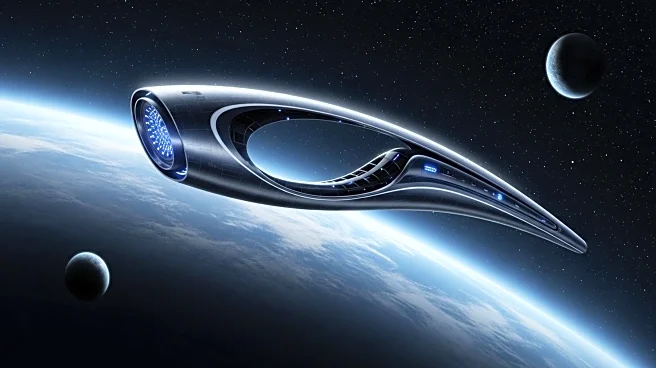What's Happening?
Tesla's Roadster, launched into space aboard SpaceX's Falcon Heavy in 2018, was recently mistaken for an asteroid by astronomers. The vehicle, equipped with a mannequin named Starman, continues to orbit the sun. This incident highlights the challenges of tracking objects in deep space, which remains largely unregulated compared to lower-Earth orbits.
Why It's Important?
The misclassification of the Roadster as an asteroid underscores the need for improved tracking and regulation of space objects. Untracked objects could distract scientists from identifying potentially hazardous asteroids, posing a risk to Earth. The incident also raises questions about transparency in space exploration and the potential impact of private companies on scientific research.
Beyond the Headlines
The presence of the Roadster in space serves as a symbol of the intersection between automotive innovation and space exploration. It reflects Elon Musk's vision of pushing technological boundaries and the potential for collaboration between different industries. However, it also highlights the ethical considerations of placing non-scientific objects in space and the long-term implications for space debris management.










